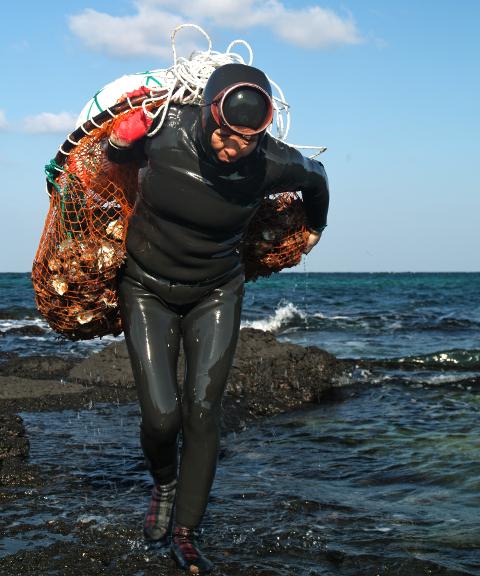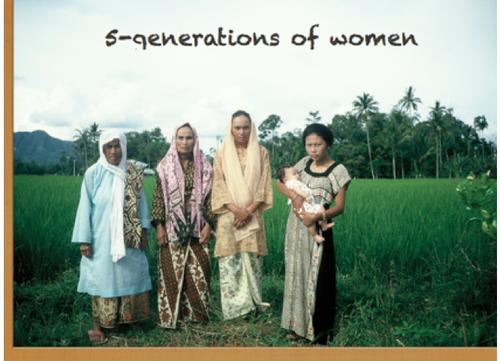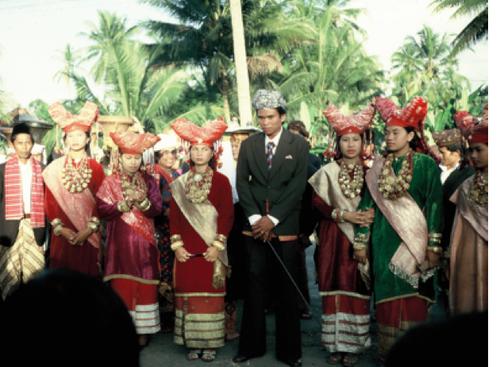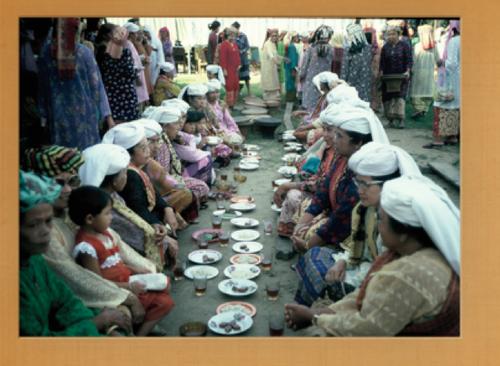| |
 |
|
| ▲ Haenyeo are regarded as a symbol of Jeju's matriarchal culture. Photo courtesy Jeju Special Self-Governing Province |
What follows is a personal reflection on the matriarchal connection between the Minangkabau of Indonesia and the people of Jeju, by anthropologist Ms. Ok-kyung Pak.
My first contact with Jeju was when I came to visit my mother, who decided to return to Korea and settle, leaving behind Canada where she had lived for more than 40 years. It was during that visit in 2011 that I came to hear about Jeju’s fascinating so-called “matriarchal” family structure and the strong jeju women. I told myself that there must be a reason why I was brought to Jeju, other than coming to visit my mother.
I am an anthropologist. It so happens that I studied another matriarchal (or matrilineal) society in West Sumatra, Indonesia in 1980-81 and 1986: the Minangkabau people. Although I knew very little of Jeju Island, I noticed an interesting similarity between Jeju society and that of West Sumatra, Indonesia.
| |
 |
|
| ▲ Image courtesy Ok-kyung Pak |
A peculiarity of these two societies is their matriarchal family structure, where women “control economy” and are often heads of the family (although other Confucian patterns of family structure appear present in Jeju - see Jeju Women’s History (2010) by Yang, Young-Oh).
Historically in Jeju, women were providers of the family, earning a living through diving in the sea. In West Sumatra, women provide for the family, but through rice cultivation - women are owners of the rice paddies and land is inherited from mother to daughter, through the matriline.
| |
 |
|
| ▲ Image courtesy Ok-kyung Pak |
Another fascinating aspect of these two societies is their origin myths. Both societies have female mythical ancestors - Seolmundae Halmang in Jeju and Bundo Kanduang in West Sumatra - that are highly revered and occupy a central position in symbolic and cultural repre-sentation. Both Jeju people and the Minangkabau have male ancestors - called half-gods in Jeju and mythical kings in West Sumatra.
Published literature on these two societies largely neglects to explain the meaning of these male ancestors, although their existence is recognized. In the case of the Minangkabau people, I provide an explanation in my publication (see footnote), but I have not yet come across any attempt to explain Jeju’s male ancestors in the literature.
| |
 |
|
| ▲ Image courtesy Ok-kyung Pak |
However, I see a similarity in the role of the male ancestors of both societies. In myth and in history, their role has been to link to the “center” - being the mainland Silla Kingdom and China (Jeju), or India and Macedonia (the Minangkabau).
A third fascinating aspect of these “matriarchal” societies is the process of modernization and its affect on women, who used to play key economic roles and be the backbone of society.
In Jeju, young women no longer wish to continue diving, which is hard labor. Among the Minangkabau, women no longer wish to work in rice fields under the hot sun. Both societies are struggling with the “transformation” of their societies as the evolving place of women and their symbolic representation marks a shift in society’s identity and the autonomy of women.
“Gender equality” is now one of the central themes of global development, the result of a long history of struggle in many societies. Jeju and the Minangkabau, both of which had a foundation of “gender equality” - equal rights, equal access to resources and opportunities - should not loosen their grip on this hard sought dream, which many societies are struggling to obtain.
Based on my Indonesian experience and knowledge, there is much for me to learn about Jeju Island and its people, as well as to contribute to the desire for a better future for this rapidly changing island.
Further reading: “The enigma of male ancestors among the Matrilineal Minangiabau of West Sumatra”, in Nicole-Claude Mathieu (ed), A House without a Daughter is a Dead House: Person and Gender in matrilineal and\or Uxorilocal Societies (in French)., 2006, Paris: Editions de l’Herne
Ms. Pak is currently Ph.D. Research Associate at the University of Montreal, Canada and also at Jeju National University. She divides her residence between Jeju and Montreal, Canada. She lectures on Jeju identity and gender relations in Jeju and Sumatra at the Peace Island Summer School at Jeju National University.
|























